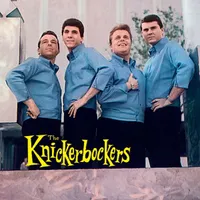Era and Genre
-
The Knickerbockers (1965):
- Rooted in the mid-1960s garage rock and British Invasion sound, their “Lies” is upbeat, guitar-driven, and harmony-rich—often mistaken for a Beatles track.
- Thompson Twins (1983):
- A synth-pop anthem from the New Wave movement, featuring electronic beats, layered vocals, and a sarcastic tone that reflects the irony of the 1980s.
https://www.youtube.com/watch?v=bWZWhp-Zh9M
https://www.youtube.com/watch?v=MNeVjVu9O6w
Themes
- Knickerbockers:
Focuses on personal heartbreak and betrayal, with a straightforward lament about romantic dishonesty. - Thompson Twins:
Expands the concept of lies from personal relationship issues to societal manipulation and media spin, contrasting with the Knickerbockers’ focus on romantic dishonesty. Its tone is biting and cynical, in contrast to its danceable rhythm.
Cultural Context
- Knickerbockers:
Captures the optimism and innocence of the 1960s pop scene, even amid heartbreak. - Thompson Twins:
Reflects a more complex, media-saturated world of the 1980s, where irony and skepticism dominate.
Impact
- Knickerbockers:
A cult classic that showcased American bands’ ability to emulate British pop and briefly broke into mainstream charts. - Thompson Twins:
A global hit that became a defining staple of MTV-era pop culture, resonating with themes of distrust amid information overload.
Closing Reflection:
Both songs remind us that dishonesty—whether in love or society—never goes out of style. From jangly guitars to pulsing synths, “Lies” has been a recurring motif in pop music, evolving with the times but always striking a nerve. Which version speaks more to your world: the innocent heartbreak of the ’60s or the ironic cynicism of the ’80s?
